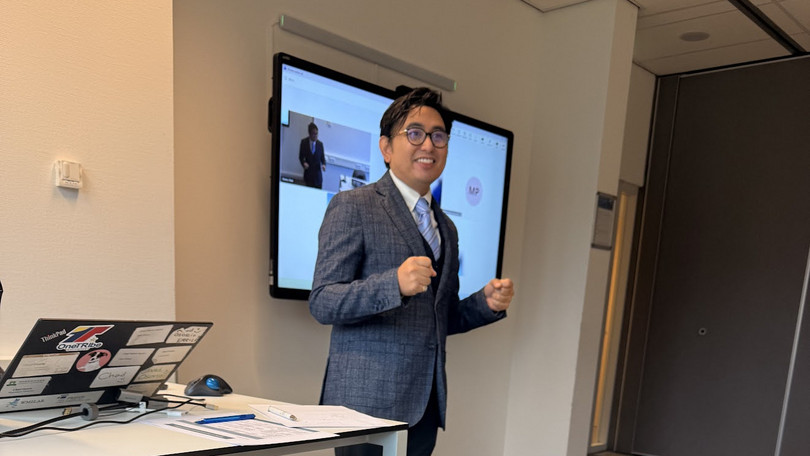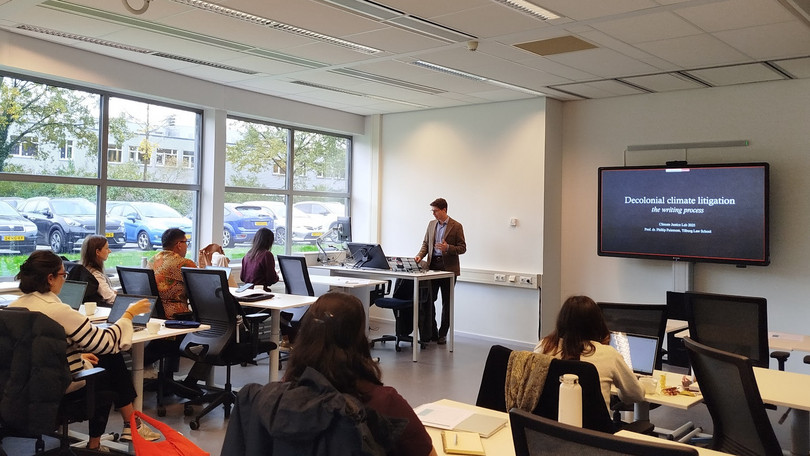Climate Justice Lab #2
THE ROLE OF INTERNATIONAL COURTS IN A CLIMATE-CHANGED WORLD
The Climate Justice Lab returns for its second edition, building on the success of the 2024–25 cohort hosted by the Joachim Herz Doctoral School of Law at Leuphana University Lüneburg. This interdisciplinary research and collaboration initiative gathers early-career scholars, legal practitioners, and policy researchers to interrogate the evolving relationship between climate justice, legal systems, and institutional transformation.
The Climate Justice Lab offers an expert-guided, peer-supported workshop series where participants collaboratively develop academic papers. It is designed to complement participants’ climate justice research agendas, offering a space to refine working papers, including those stemming from dissertation research, receive targeted feedback, and build interdisciplinary insights on climate justice jurisprudence. Participants will benefit from:
Research development: structured feedback on papers, including those stemming from dissertation research, from peers and senior experts.
Publication opportunity: the chance to publish their contributions in a dedicated SSRN working paper series (optional and subject to editorial capacity).
Policy impact: specialized training on policy brief writing and strategies to translate academic research into actionable public knowledge.
Networking and collaboration: access to an international network of scholars and practitioners working on climate justice.
Long-term engagement: opportunities to stay connected through future Lab activities, including the third edition to be launched in 2026.
In this edition, the Lab turns its focus to a pressing and timely question: What role do courts play in shaping our legal and political realities in the face of the climate crisis?
Theme
Courts around the world are increasingly confronted with questions of climate justice, from national constitutional courts to regional human rights bodies and international tribunals. With landmark rulings and advisory opinions already emerging – such as those from the International Court of Justice (ICJ), the International Tribunal for the Law of the Sea (ITLOS), the Inter-American Court of Human Rights (IACtHR), and national supreme courts – the Lab asks:
How can courts shape climate justice futures?
Participants will critically engage with recent jurisprudence, identify pathways for legal and political implementation, and co-develop innovative, justice-oriented frameworks for institutional accountability in the Anthropocene.
The Climate Justice Lab 2025/26 began with an online meeting on 24 October 2025. Stefanie de Sousa Vieira (Leuphana University Lüneburg) and Chad Osorio (Wageningen University) opened the meeting with a brief introduction to the project and its schedule.
They then moved on to this year's lab objective: 'Climate Litigation as a Tool to Achieve Climate Justice'. Professor Dr Louis Kotzé (Wageningen University) and Dr Verena Kahl (University of Hamburg/Europakolleg Hamburg) delivered fascinating keynote speeches on this topic. Having participated in last year's Climate Justice Lab, Verena's presentation on the ICJ's advisory opinion also provided a link to the previous edition of the project.
Moreover, the opening event offered participants the opportunity to introduce themselves and ask questions. Thus, nothing stood in the way of a smooth start on Tuesday, 28 October 2025.
The first stop on this year's Climate Justice Lab was Wageningen University on 28 October 2025. This event marked the official start of this year's workshop series bringing together 11 young scientists with a keen interest in climate justice. The project provides a supportive environment in which participants can develop a scientific contribution, turning a rough idea into a finished publication with continuous opportunities for feedback.
The event was opened by the two organisers, Chad Osorio and Stephanie de Sousa Vieira. This was followed by a keynote speech on the topic of 'Decolonial climate litigation' delivered by Professor Dr Phillip Paiement (Tilburg University). Having recently dealt with this topic in a publication, he explained how such a contribution is structured, how it was conceived, and the methodology employed.
This part was followed by five-minute 'elevator pitches' of the participants' article projects, followed by short question-and-answer sessions. To facilitate further discussion of the presented projects, small group discussions were held, during which participants could exchange ideas in more detail and offer each other advice and additional perspectives.
Over the coming months, participants will work on their publications to be presented at the next on-site meeting at Tilburg University in March 2026.
Details to be announced.
12 March 2026
- 09:00 – 10:30 Expert Talk
- 10:30 – 11:00 Break
- 11:00 – 12:30 3 Presentations (30 mins per person –> 10 mins presentation + 20 mins discussion)
- 12:30 – 13:30 Lunch Break
- 13:30 – 15:00 3 Presentations
- 15:00 – 15:30 Break
- 15:30 – 17:00 3 Presentations
13 March 2026
- 10:00 – 11:30 3 Presentations
- 11:30 – 12:00 Group Discussion / Closure Internal Event
- 12:00 – 13:00 Lunch Break
- 13:00 – 15:30 Public Event / Outcome Presentation
- 15:30 – 15:45 Closure
Details to be announced.
Chad Osorio
Wageningen University & Research (link)
Organiser and participant of the first edition of the Climate Justice Lab.
Contact: chad.osorio@wur.nl
Stephanie de Sousa Vieira
Leuphana University Lüneburg (link)
Organiser and participant of the first edition of the Climate Justice Lab.
Contact: stephanie.sousa_vieira@leuphana.de
Lila Emile García
Leuphana University Lüneburg, LIAS (link)
Paulina Rundel
University of Vienna (link)
Conrado Maximanuel Cornelius
National University of Singapore (link)
Sofia Tumaini
Africa Adaptation Initiative (link)
Nidhi Ananda Hanji
University of Amsterdam (LinkedIn)
Iryna Ponedelnik
Alliance "Green Belarus" (link)
Paula Andrea Nieto Hernandez
Erasmus University Rotterdam (link)
Roberta Amoriello
Business and Human Rights Expert (LinkedIn)
Mathilde Cohen
Tilburg University (link)
Rebecca Militz
Goethe University Frankfurt (link)
Anaëlle Bueno Patin
Tilburg University (link)



